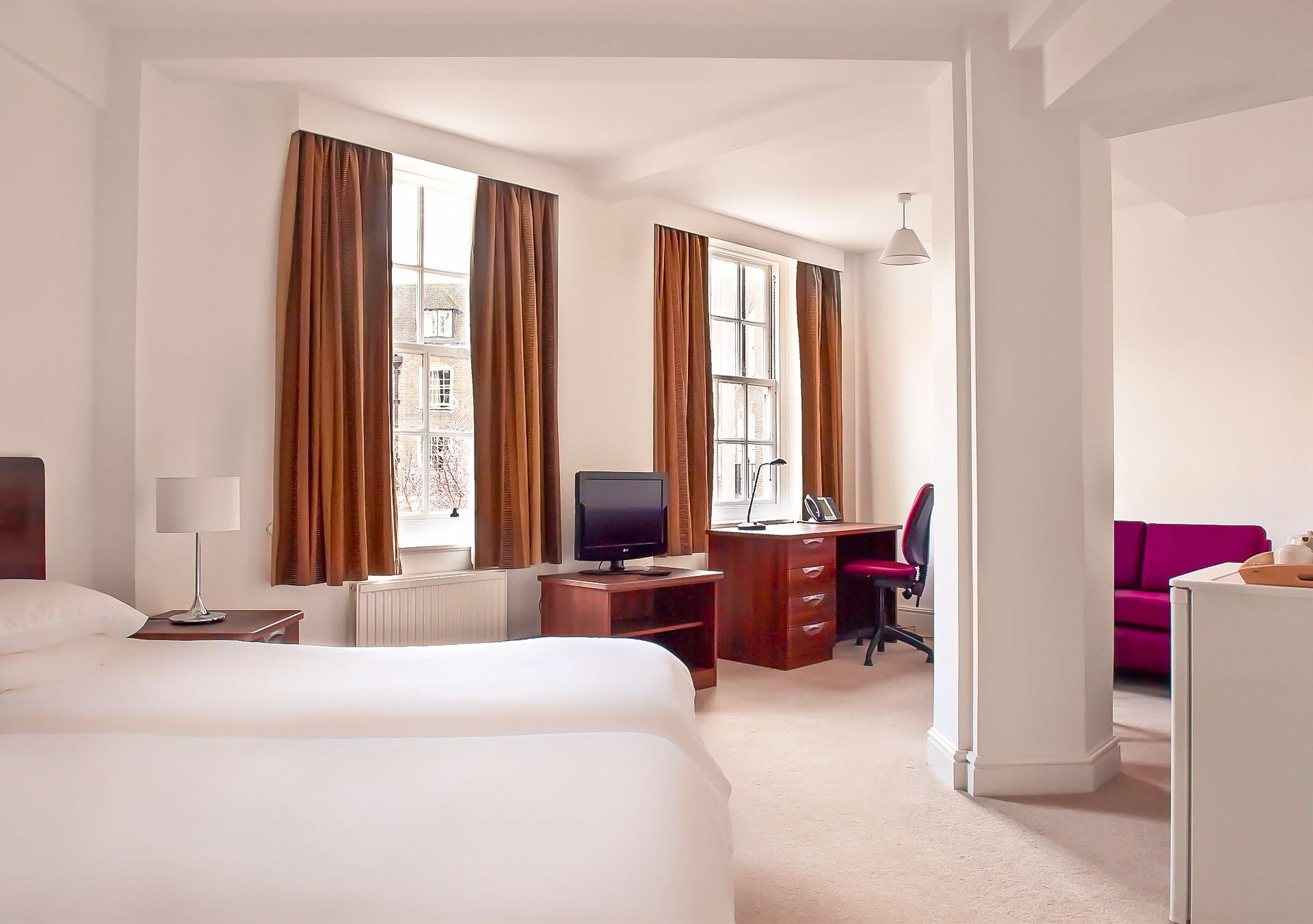Alicante is a Spanish city and the capital of the province of Alicante. It is located on the Mediterranean coast in the southeast of the country and is ranked as the 11th largest city in Spain. The economy is based primarily in the services sector, which currently employs around 90% of the active population. Commerce plays a large part in this, due largely to the historic importance of the port. Tourism is also an extremely important aspect of the city’s development. Although it started growing steadily from the 1950s, some form or other of it was present ever since the middle of the 19th century.
A large part of the city is covered with parkland. The Explanada de España, also known as the Paseo de la Explanada, is a seaside promenade, which runs parallel to the port. It is made up of over 6 million tesserae which produce an ornate, undulating mosaic of red, black and white. For the Alicante community it is a sign of the city’s identity, as well as a symbol of tourism.
Accommodation in Alicante’s student residences
All the student halls in Alicante are assigned to the University of Alicante, located in the nearby town of San Vicente del Raspeig, around 6 kilometres (4 miles) northeast of the city, and offer basic but comfortable accommodation. It should be understood that these residences are designed primarily for students and not children or adults expecting a high level of luxury. However, with this in mind, the halls do meet a level of comfort that we expect most visitors to be happy with, and we will welcome any feedback where this is not the case.
Getting around Alicante
The city has an extensive bus network. All transport in the area can be used with the Móbilis travelcard. The international airport of Alicante is located around 10km (7miles) away from the city. There are currently 3 railway lines in the city that connect it to the centre with the suburbs and nearby towns and villages. The city offers great links to cities like Murcia, Valencia, Barcelona and Madrid.
